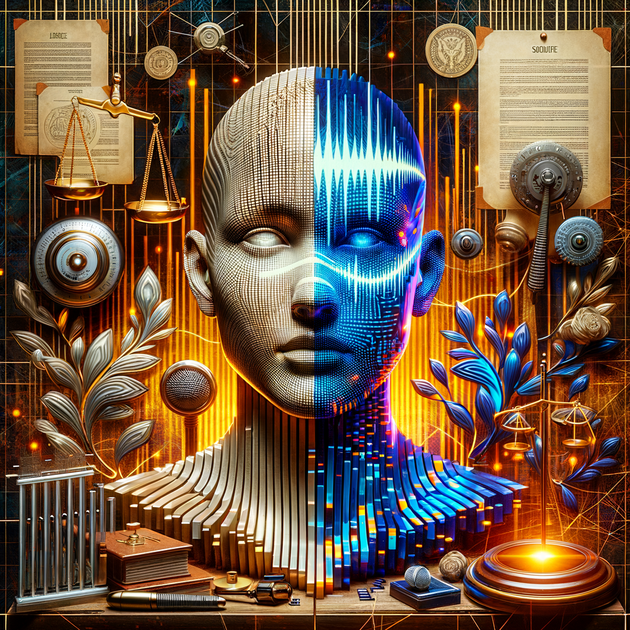AI Voices vs. Personal Rights: Navigating the Ethical and Legal Labyrinth
Imagine waking up one morning to discover that your voice is being used by millions of users interacting with an AI, without your explicit consent. This was the scenario faced by actress Scarlett Johansson when an AI voice, eerily similar to hers from the movie “Her,” was brought to the public’s attention. This incident opens up a Pandora’s box of ethical, legal, and technological considerations that need immediate addressing in our rapidly evolving AI landscape.
The Evolution of AI Voice Technology
Artificial intelligence has come a long way. From simple text-to-speech systems to sophisticated neural network-based voice synthesizers, AI’s ability to replicate human-like voices has grown exponentially. AI-generated voices have found applications in virtual assistants, educational software, customer service, and more, making technological strides that blur the line between human and synthetic voices.
The Controversy of “Sky”

An AI-generated image resembling actress Joaquin Phoenix from the movie “Her.”
OpenAI recently found itself at the center of controversy when it had to remove an AI-generated voice named “Sky” from ChatGPT. Despite being recorded by a voice actor, “Sky” had an uncanny resemblance to Scarlett Johansson’s voice from her portrayal in the movie “Her.” This incident raises significant questions about personal rights and the ethical use of AI voices.
Real-World Example: Scarlett Johansson
“Nine months later, my friends, family, and the general public all noted how much the newest system named ‘Sky’ sounded like me,” Scarlett Johansson shared, emphasizing her shock and disbelief when she realized the resemblance. This led her to seek legal counsel, urging for transparency and the protection of individual rights.
Personal Rights and AI: A Complex Interplay
The Role of Voice Actors
Voice actors have long been lauded for their ability to mimic famous personalities, adding unique characteristics to create evocative imitations. The line between emulation and impersonation, however, becomes blurred when AI technologies can replicate a voice with near-perfect accuracy.
Privacy and Control
Public figures like Scarlett Johansson possess rights over their likeness, including their voice. These rights enable them to control and protect how their voice is used in commercial and other contexts. Ignoring these rights can lead to problematic situations where the individual’s privacy is violated.
Ethical and Legal Considerations
- Consent: Was there explicit permission to replicate the voice?
- Attribution: Is proper credit being given to the original voice owner?
- Compensation: Is the original voice owner being financially compensated?
These considerations are paramount in ensuring that technological advancements do not infringe upon personal rights.
AI Innovation vs. Personal Rights: Finding Balance
While AI voice technology presents incredible opportunities for innovation, it necessitates a fine balance between advancement and respect for individual rights. Companies need to tread carefully, ensuring they do not exploit or mislead consumers with AI-generated voices.
OpenAI’s Response
OpenAI’s decision to remove “Sky” from ChatGPT is commendable as it demonstrates an adherence to ethical standards. However, it also highlights the urgent need for clear guidelines and regulations in the AI industry. A structured framework must be established, fostering an environment where innovation thrives without compromising personal rights.
The Road Ahead: Legal and Ethical Guidelines
Legislation and Regulations
The controversy around “Sky” illustrates the need for evolving legislation to address new challenges posed by AI. Regulatory frameworks must include:
- Clear Consent Protocols: Ensure that individuals explicitly consent to the use of their voice likenesses.
- Proper Attribution: Reflect the source of the AI-generated voice accurately.
- Fair Compensation: Guarantee financial remuneration for the use of prominent voices.
Collaborative Efforts
Technological developers, legal experts, and public representatives must engage in ongoing dialogue to create ethical standards and guidelines that protect individual rights while supporting innovation.
Engage and Reflect
What are your thoughts on the ethical use of AI-generated voices? How can we balance technological advancements with the protection of personal rights? Share your thoughts in the comments below!
